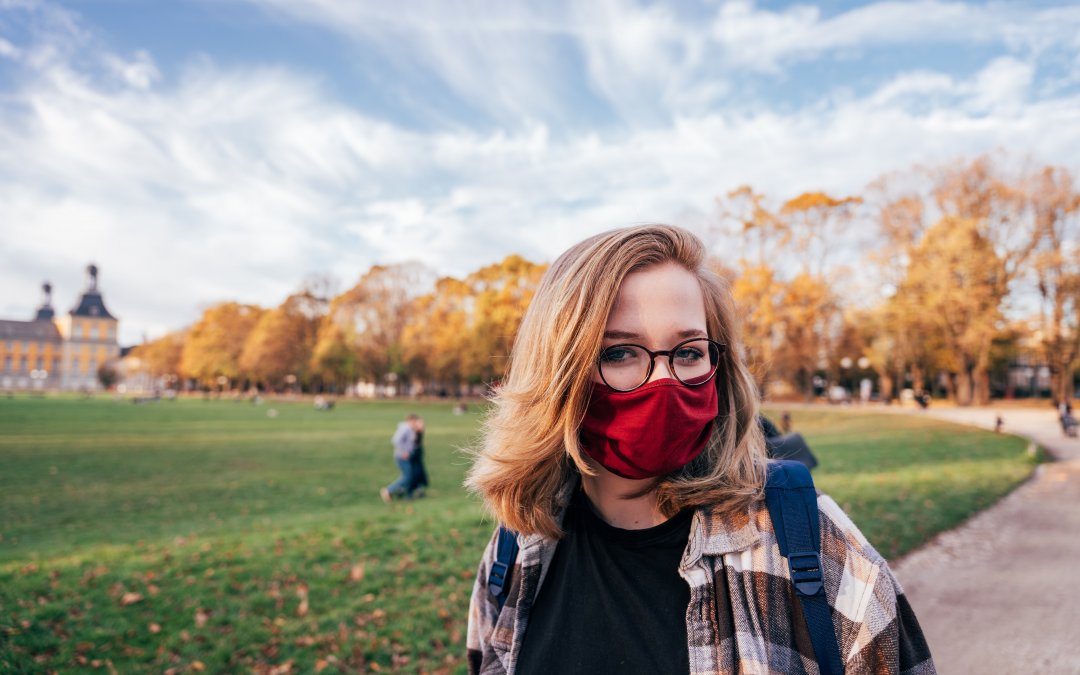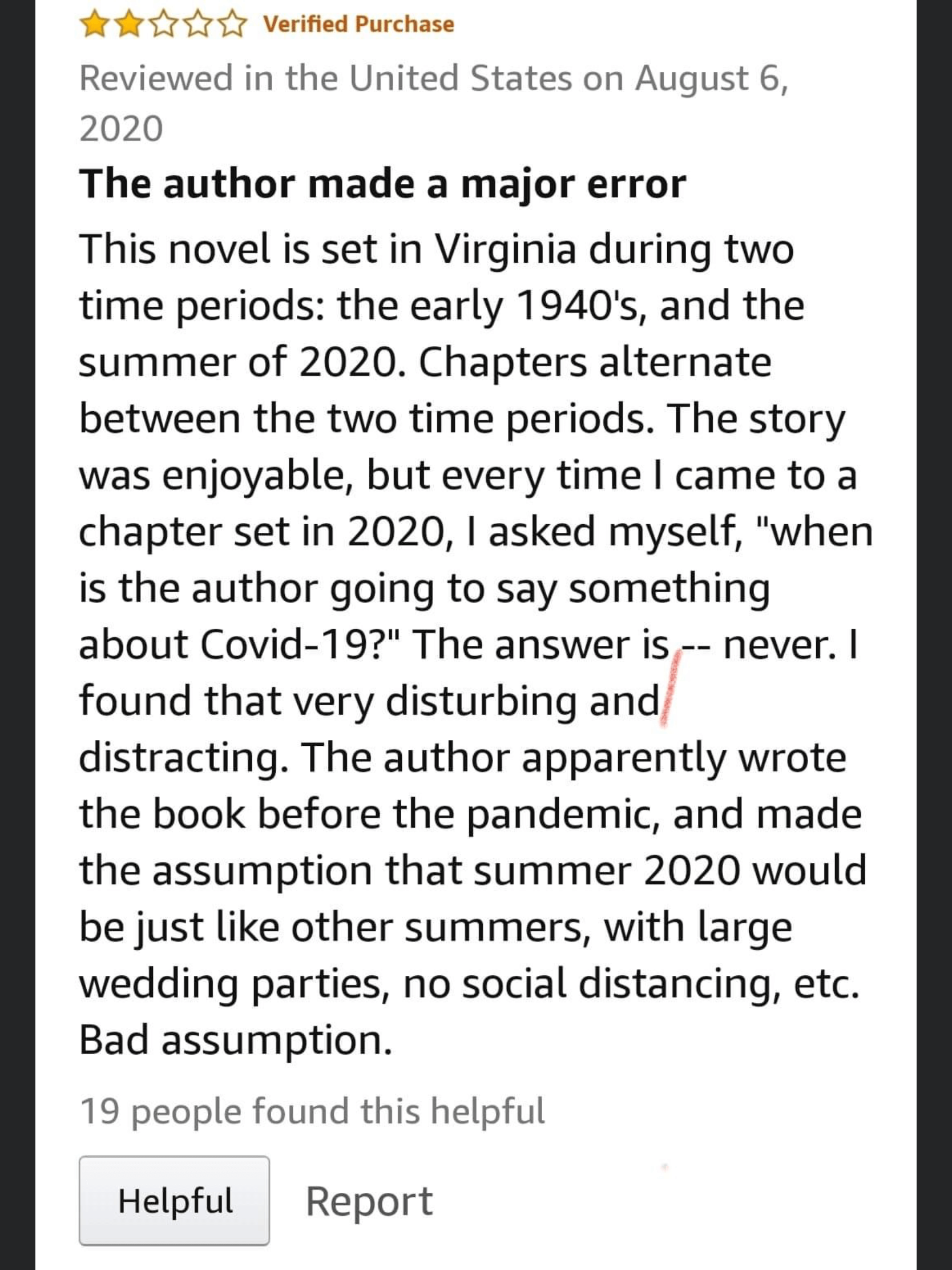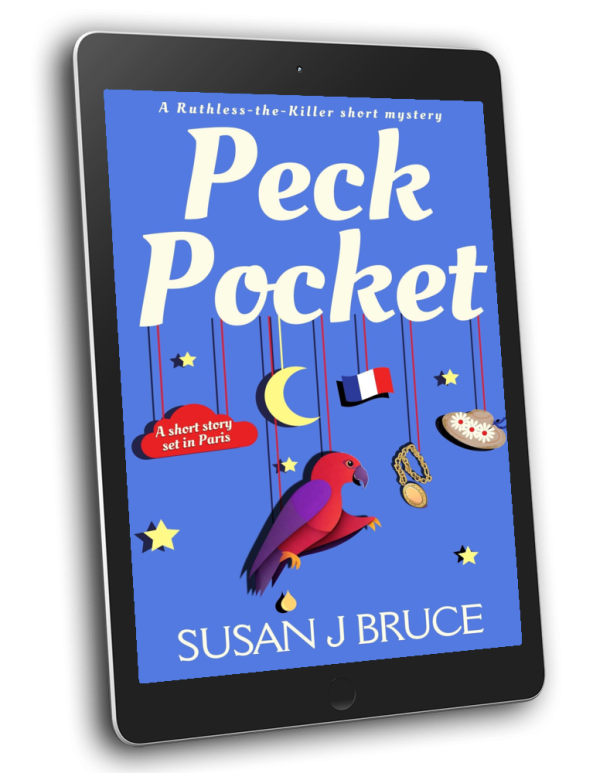
Should the pandemic shape the settings of our novels?
* An earlier version of this article was published on the Christian Writers Downunder Blogspot on August 30, 2021.
One of the dilemmas authors face if we write contemporary fiction or begin our speculative stories in a present-day setting, is whether or not we should refer to the Covid-19 pandemic.
I’ve written one young adult (YA) novel and I’m currently developing a contemporary, amateur sleuth mystery series. My problem is that both stories begin in the ‘present day’.
Do I acknowledge the pandemic or not?
There are different thoughts on this.
I read on one forum that Amazon was taking down books that were focused on Covid-19. I tried to find evidence of this on Amazon’s website but I couldn’t find any prohibitions. In the early days of the pandemic Amazon was flooded with a wide range of dubious products claiming to cure the virus, which they subsequently took down from sale. They have also removed some nonfiction books of dubious merit, some of which have been reinstated.
I honestly don’t see how they could object to the pandemic acting as a backdrop to contemporary fiction but their bots do odd things at times. Mind you, I recently had a seasoned reviewer friend say they had a review removed from Amazon and the only reason they could think of was that they mentioned the lockdown in the review.
Bottom line: If you have a book in mind and you are not sure if the theme is okay then I’d contact Amazon directly and check.
A stronger reason to avoid referencing the pandemic in our fiction is because people often want to escape life’s problems when they read. I think it would depend on the reader and the level of realism they crave, but lighter reads have done well since the pandemic began.
I think that my friends who write fantasy are in a good position as they don’t have to choose. Werewolves don’t get Covid… although they could conceivably get parvo. Hey, there’s a plot idea!
But I digress. After thinking this through I decided to leave out any mention of Covid from my books. It seemed much simpler to ignore the mess the world was in and have fun in my writing bubble.
But then I saw this two-star review posted on another forum.
It makes me giggle – and groan – every time I read it.
My favourite line:
The author apparently wrote the book before the pandemic and made the assumption that summer 2020 would be just like other summers…
I mean really, what a terrible author. I know many writers are brilliant creative people but this one missed it, right? If they wrote a book in 2018 or 2019 why wouldn’t they know life would be totally disrupted in 2020? Fancy not being able to predict that a global pandemic would disrupt the world at some future date. Epic fail!
In truth this is both hilarious and sad. Funny that someone would blame an author for not being able to predict the future, and disappointing that this two-star rating could affect the author’s ability to sell their book in the future.
Crazy, huh?
Did you see that 19 people thought the review was helpful?
All groans aside, it did make me realise that some people can’t see past the current world circumstances. The impact of Covid-19 on the psyche of some folk is so profound that they can’t embrace an imaginary world that doesn’t acknowledge the virus.
The question is, what do we do about this?
- When we are writing new books
- When we’ve already written a book that refers specifically to 2020
- When we get an irrational review like this
If we have a work in progress we might:
- Continue to set the book in the present but include a forward note explaining why we left Covid-19 out of the story
- Set the book in a specific year – say 2019
- Do nothing – refuse to waste our energy on the minority that might not ‘get’ our work
If we’ve already published a book that mentions 2020, we could try similar things:
- Rewrite the whole book (Noooooo!)
- Change the dates in the book to less contentious ones
- Including a forward note as above
- However most traditional publishers would be unlikely to re-format books and put out a second edition unless there was a very good reason
- Do nothing
If we get a review that shows *cough* a lack of insight like this one, all the conventional wisdom says: Do. Not. Reply. I guess it’s an opportunity to further develop the thick skin we need as authors (as if we don’t have enough of those opportunities ?).
So back to my novels. I think I’m going to stick with my original plan to exclude the pandemic from my stories. The forward note idea sounds good to me, but I’d love to hear what you think. Is this a good plan?
How are you approaching writing contemporary settings in 2020?
Have you ever received a crazy review like this? I’d love to hear what it said ?.
What would you do if you received a review like this? Let me know in the comments below!





